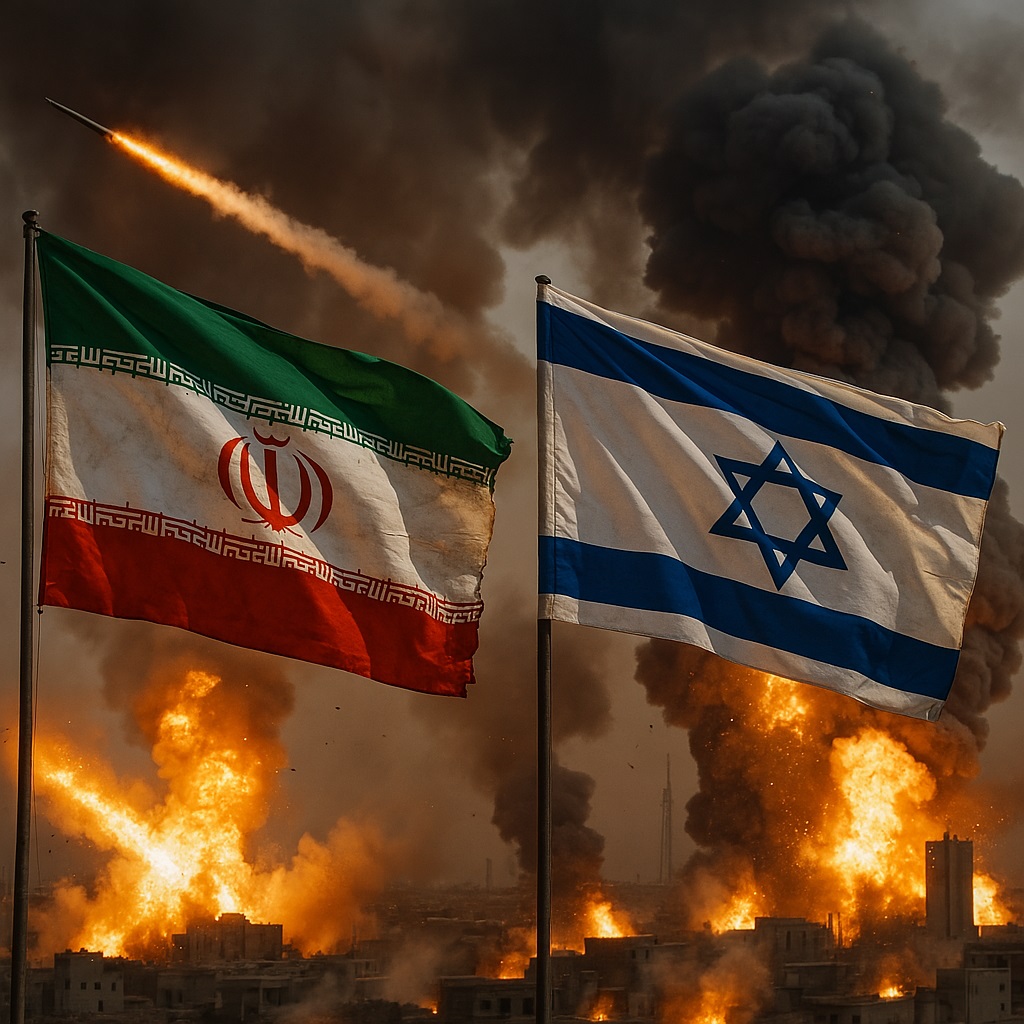The Iran-Israel Conflict: From Origins to Present-Day War

The conflict between Iran and Israel is one of the most complex and enduring geopolitical rivalries in the Middle East. Rooted in ideological, political, and military tensions, it has evolved over decades, culminating in direct confrontations and proxy wars. This article explores the genesis of the Iran-Israel conflict, its historical developments, and the latest escalation that has brought the two nations to the brink of full-scale war.
From Allies to Adversaries
Iran and Israel were once allies. Before the 1979 Iranian Revolution, Iran maintained diplomatic and economic relations with Israel, recognizing it as a sovereign state. However, the revolution led by Ayatollah Khomeini transformed Iran into an Islamic Republic, fundamentally altering its foreign policy. The new regime viewed Israel as an illegitimate state and a threat to the Muslim world, aligning itself with Palestinian resistance movements and militant groups such as Hezbollah.
Iran’s hostility toward Israel intensified in the 1980s, with Tehran providing financial and military support to anti-Israel factions. The emergence of Hezbollah in Lebanon, backed by Iran, marked the beginning of a proxy war between the two nations. Israel, in turn, sought to counter Iran’s influence by strengthening ties with Arab states opposed to Tehran’s expansionist policies.
Nuclear Ambitions and Escalation
One of the primary sources of tension between Iran and Israel has been Iran’s nuclear program. Israel perceives Iran’s nuclear ambitions as an existential threat, fearing that Tehran could develop nuclear weapons. In response, Israel has conducted covert operations, including cyberattacks and assassinations of Iranian nuclear scientists.
In 2010, the Stuxnet cyberattack, widely believed to be orchestrated by Israel and the U.S., disrupted Iran’s nuclear facilities. In 2020, Israel allegedly assassinated Mohsen Fakhrizadeh, a top Iranian nuclear scientist, further escalating hostilities. Iran retaliated by increasing uranium enrichment and expanding its military presence in Syria, bringing its forces closer to Israel’s borders.
Recent Developments and Direct Confrontation
The conflict took a dramatic turn in April 2024 when Israel launched airstrikes on Iran’s consulate in Damascus, killing two Iranian generals. Iran responded with an unprecedented missile and drone attack on Israel, firing over 300 projectiles. Although Israel intercepted most of them with the help of a U.S.-led coalition, the attack signaled a shift from proxy warfare to direct confrontation.
In June 2025, Israel carried out a large-scale military operation against Iran, targeting nuclear and military sites. The strikes killed several top Iranian officials, including Hossein Salami, the head of the Islamic Revolutionary Guard Corps (IRGC), and Mohammed Bagheri, the chief of staff of the armed forces. Iran retaliated with ballistic missile strikes on Israeli cities, prompting fears of a full-scale war.
Global Reactions and Diplomatic Efforts
The international community has reacted with concern. The U.S. has urged restraint, while European nations have called for diplomatic solutions. Muslim-majority countries, including Pakistan and Saudi Arabia, have condemned Israel’s actions, warning of regional instability. The International Atomic Energy Agency (IAEA) has confirmed that Iran’s Natanz nuclear site was among the targets and is monitoring the situation closely.
Despite calls for peace, both nations remain on high alert. Israel has declared a state of emergency, fearing further Iranian retaliation. Iran, meanwhile, has vowed to continue its resistance, rallying support from its allies in the region.
The Iran-Israel conflict has evolved from ideological opposition to direct military confrontation. With both nations unwilling to back down, the risk of a broader regional war looms large. While diplomatic efforts continue, the future remains uncertain, with the potential for further escalation or a breakthrough in negotiations.



0 Comments
No comments yet, be the first to comment